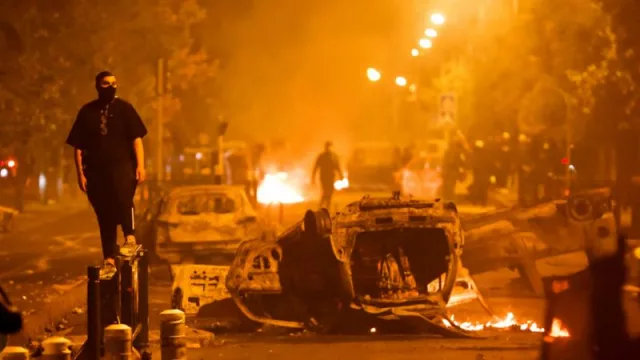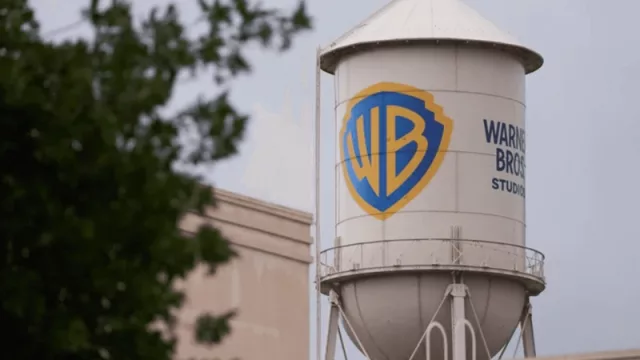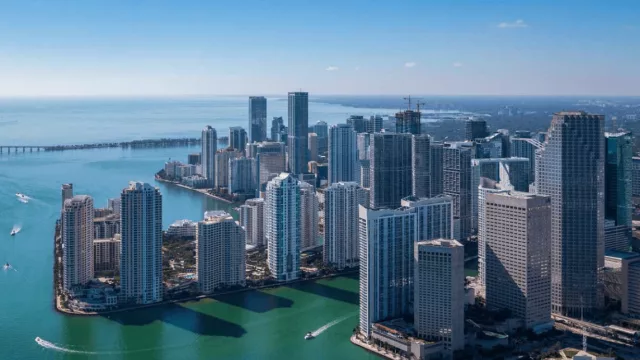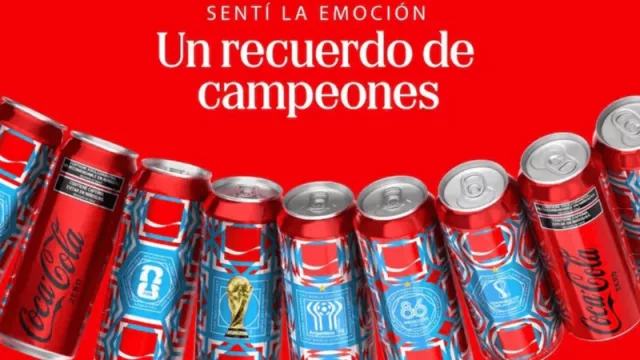What similarities does this event have with incidents in the United States or recent upheavals in Anglo-Latin America?
In an attempt to calm the situation, Nahel's grandmother has urged protesters to stop acts of violence and not destroy public properties such as schools and buses, as they negatively affect the community. However, the violence continues, and numerous fires and destruction have occurred in the streets.
The causes of this revolt in France are diverse. A hellish inferno of fire, almost inviting the deranged and fueled by ideological agents of violence.
On one hand, discrimination and police brutality have been pointed out as factors that have generated a sense of resentment among certain sectors of the population. Additionally, the presence of migrants, lack of job opportunities, and the existence of illegal businesses in the suburbs have also contributed to social tension.
Regarding the currents driving these protests, the participation of young people and teenagers who use social media to organize and boast about their destructive acts is notable. But who incites them to compete for who generates more violence and destruction? What movements are behind this unnatural activity?
A competition among them (the youth) to cause the greatest possible harm has been observed, reflecting a sense of detachment from the country and a lack of future prospects. However, there is also significant manipulation by ideological movements behind them.
These events in France resemble previous conflicts in the United States and Europe triggered by police violence. In the case of France, the 2005 uprising was a notable example, although now there is an even greater level of hatred and rejection among the protesters. The destruction of schools and other public buildings represents a threat to the future of these young people, but it seems they do not comprehend the consequences of their actions.
It is important to note that these demonstrations often involve the infiltration of agents of violence whose aim is to generate chaos and worsen the situation. Identifying and neutralizing these individuals is crucial to maintaining order and preventing further harm.
What does people need to understand to avoid more violence? What should political movements, political parties, and leaders do to establish peace in nations? Isn't it much more useful to promote peaceful and sustained proposals? Who benefits from chaos? Which fanatical, ideological movements take advantage of these moments of social pain to incite anger and violence?
The violent protests in France over the death of Nahel have resulted in over 3,000 arrests and a trail of destruction in several cities. The causes of this revolt include discrimination, police brutality, and lack of opportunities in the suburbs. Young people and teenagers have organized themselves through social media to carry out acts of violence, displaying a sense of rejection toward the country.
It is clear that this is a summary of the facts, but what motivates the organization of these acts of vandalism? Why are there excessive displays of violence on certain issues while peaceful demonstrations for the democratization of Latin American states are not addressed by society? What is always behind violence? Again, who and what are the influences on the youth, whether in this country or anywhere in the world?
Measures need to be taken to control the situation and prevent further loss of life due to these confrontations. For this, the entire society and all institutions must support peace and peacefulI demonstrations. It is necessary to raise awareness of these acts and not justify them as a means to find a solution.
The importance of analyzing these violent protests in France extends beyond its borders, particularly to the United States and Anglo-Latin America. By examining the underlying causes and dynamics of such events, countries can gain insights into the potential triggers of social unrest within their own societies.
The parallels between the protests in France and incidents in the United States and recent upheavals in Anglo-Latin America are evident. Issues like discrimination, police brutality, socioeconomic disparities, and a lack of opportunities are universal concerns that can spark public outrage and mobilize individuals to take to the streets.
Understanding the complexities behind these protests is crucial for societies to address the underlying issues effectively and implement proactive measures to prevent similar unrest. By studying the factors that fuel violence and discontent, policymakers, political parties, and leaders can develop strategies to promote social justice, equal opportunities, and inclusive governance.
It is also essential to recognize the role of peaceful and sustained proposals in driving meaningful change. While anger and frustration can sometimes lead to violence, it is through peaceful dialogue, constructive engagement, and collaborative efforts that lasting solutions can be achieved. Peaceful demonstrations, grassroots movements, and inclusive political processes are vital for shaping a better future and avoiding the destructive consequences of violent unrest.
The violent protests in France following Nahel's death highlight the urgent need for societies to address systemic issues, promote social justice, and provide opportunities for all. Analyzing these events is crucial for the United States and Anglo-Latin America to learn from the experiences of others and work towards a more peaceful and equitable future. By understanding the underlying causes and employing peaceful strategies, societies can foster positive change and prevent the escalation of violence.












Tu opinión enriquece este artículo: